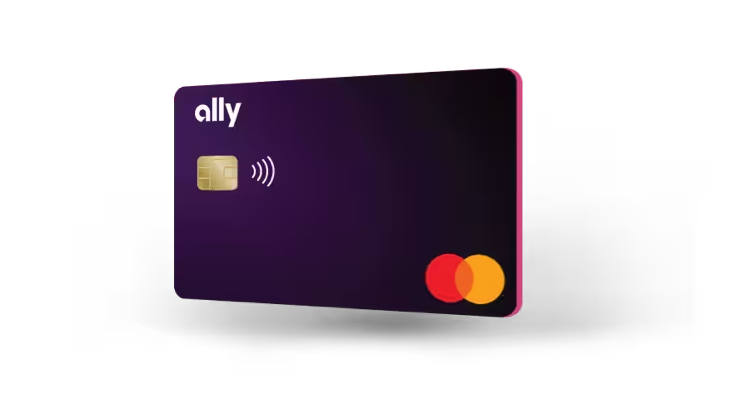How to Avoid Debt and High Interest by Using Your Credit Card Responsibly

Understanding Credit Card Management
Credit cards, when used wisely, serve as an effective tool for managing personal finances. They provide convenience, help in emergencies, and even offer rewards. However, if you’re not careful, you may find yourself grappling with debt and high interest rates. Many individuals inadvertently fall into debt traps, accumulating costly fees and poor credit scores. This article will present first-rate strategies that can help you navigate the credit card landscape effectively.
Pay Your Balance in Full
One of the most effective strategies is to pay your balance in full every month. By doing so, you avoid incurring interest charges that can accumulate quickly, especially with high-interest rates common in the credit card industry. For instance, if your card has an interest rate of 18% and you only make a partial payment, the remaining balance will accrue interest, eventually leading you to pay significantly more than your original purchase price. This practice not only saves you money but also helps avoid the cycle of debt that many find themselves in.
Stick to a Budget
Creating and adhering to a budget is another key strategy. Track your spending to ensure that you’re using your credit card for necessary expenses rather than splurging on non-essential items. Make a list of your monthly expenses—like groceries, utilities, and entertainment—to guide your spending. For example, set aside a specific amount for dining out that aligns with your overall budget, helping you enjoy activities without overspending.
Understand Your Terms
Being well-informed about your credit card’s terms can greatly affect your financial health. Familiarize yourself with your card’s interest rates, fees, and due dates to avoid surprises. Different cards have different terms; for example, a 0% introductory APR may turn into a high APR after six months. Additionally, late fees can be particularly punishing and might lead to even higher interest rates once a payment is missed. Understanding these details will empower you to make informed decisions that can reduce unnecessary expenses.
Building a habit of responsible credit card use can also positively impact your credit score. Regularly paying off your balance can lead to an improved score, which is advantageous for securing better financing options in the future, such as lower interest rates on loans or mortgages. The goal is to use your credit card as a financial tool to foster growth and stability, rather than as a means to complicate your economic situation.
By implementing these strategies, you’ll not only keep debt at bay but also cultivate a healthier relationship with your credit card, ensuring it works for you rather than against you.
DISCOVER MORE: Click here to learn about managing your freelance income and taxes
Essential Practices for Responsible Credit Card Use
To foster a healthy relationship with your credit card, it’s crucial to adopt practices that promote responsible usage. Not only do these habits help you avoid debt and excessive interest payments, but they also create a solid foundation for achieving your financial goals. Here are some essential practices that you can easily incorporate into your daily life:
Limit Your Credit Card Usage
One effective way to avoid accumulating debt is to limit your credit card usage. This doesn’t mean you should stop using your card altogether, but being mindful of how often you use it can lead to more conscious spending. Set a limit on how much you’ll charge each month, ensuring it aligns with your budget. For example, if you anticipate expenses of $500 for discretionary spending, consider capping your credit card use to that amount. This helps keep your overall credit utilization low and makes it easier to pay off your balance in full every month.
Set Up Alerts and Reminders
Another helpful strategy is to set up alerts and reminders for your credit card payments and spending limits. Many credit card companies offer mobile apps with features that allow you to monitor your account activity in real-time. You can set alerts for various activities, such as:
- When your balance reaches a certain threshold
- A reminder a few days before your payment due date
- Notifications for payment confirmations
By having these notifications, you can stay on top of your spending and avoid late fees. You’ll also prevent overspending, as you will receive real-time updates alerting you to your remaining balance. This proactive approach creates an opportunity for you to reassess your budget and spending habits.
Use Reward Programs Wisely
Many credit cards come with rewarding features, such as cash back, points, or travel rewards. While these perks can be beneficial, it’s essential to use reward programs wisely. Aim to select rewards that match your lifestyle and spending habits. For example, if you frequently travel, a card offering travel rewards may be a perfect fit. However, be cautious not to alter your spending habits merely to earn rewards. The key is to only purchase items that you genuinely need and can afford to pay off immediately.
Using your credit card responsibly revolves around creating smart habits that reinforce financial stability. By limiting usage, setting alerts, and understanding reward programs, you can take proactive steps to manage your credit card effectively. This disciplined approach is instrumental in steering clear of debt and high-interest rates, paving the way toward a more secure financial future.
DISCOVER MORE: Click here to learn how to apply
Building a Strong Credit History
Responsible credit card usage not only helps you avoid debt and high interest payments but also plays a significant role in building a strong credit history. A favorable credit score can open doors to better loan rates and personal finance opportunities. Below are additional methods for managing your credit cards effectively while simultaneously enhancing your creditworthiness.
Pay More Than the Minimum Payment
One of the most crucial strategies to avoid accruing interest is to pay more than the minimum payment on your credit card bill each month. While it might be tempting to only meet the minimum, doing so can prolong your debt and result in high interest charges. For example, if your minimum payment is $50, but you can afford to pay $100, opt for the higher amount. Not only will this reduce the principal balance more quickly, but it will also positively impact your credit score by demonstrating responsible credit management.
Regularly Review Your Statements
Another essential practice is to regularly review your statements. Make it a habit to scrutinize each transaction for inaccuracies or unauthorized charges. Most banks allow you to access your statements online, making it easy to check your spending. If you notice any discrepancies or feel you have been billed incorrectly, reach out to your credit card provider immediately. This helps prevent accidental overspending and lays the groundwork for a more organized financial portfolio. Furthermore, ongoing reviews can help you identify spending patterns that may need adjusting.
Know Your Credit Card Terms
Your credit card agreement contains vital information that can help you manage your debt effectively. Know your credit card terms regarding interest rates, fees, and rewards. Understanding the difference between fixed and variable interest rates, along with any specific fees associated with late payments, can guide your spending decisions. For example, if your card has a high-interest rate for cash advances compared to regular purchases, avoid using it for cash withdrawals. Being informed allows you to navigate your credit card usage proactively, maximizing benefits while minimizing costs.
Establish an Emergency Fund
Having an emergency fund can greatly reduce the temptation to rely on your credit card for unexpected expenses. Aim to save at least three to six months’ worth of living expenses in a high-yield savings account. This fund acts as a safety net, allowing you to handle financial emergencies without resorting to credit cards, which often come with high-interest rates. For instance, if your car requires urgent repair, having savings readily available removes the need to charge it and incur interest, keeping your financial health intact.
Incorporating these practices into your credit card management strategy can not only help you avoid debt and high interest but also establish a strong financial footing that contributes to your overall well-being. By being mindful of your payment habits, reviewing statements regularly, understanding your card terms, and building an emergency fund, you’re crafting a financially responsible lifestyle that pays off in the long run.
DISCOVER MORE: Click here to learn about real estate opportunities
Conclusion
In summary, managing your credit card responsibly is an essential skill that can empower you financially and help you steer clear of debt and high-interest charges. By implementing strategies such as paying more than the minimum payment, reviewing your statements diligently, understanding your credit card terms, and establishing an emergency fund, you are taking proactive steps toward a healthier financial future. Each of these habits fosters not only responsible spending but also boosts your credit score, paving the way for greater financial opportunities down the line.
Moreover, it’s essential to remember that credit cards can be a helpful tool when used prudently. They offer conveniences and rewards that can enhance your financial life, but with those benefits come responsibilities. Always treat your credit card as a means to an end rather than a source of additional income. By being disciplined and informed, you can cultivate a strong relationship with credit that stands the test of time.
Ultimately, the key to avoiding debt and high-interest payments lies in thoughtful planning, regular evaluation of your financial practices, and a commitment to your financial goals. As you continue on your journey, keep these principles in mind, and you’ll find that a little knowledge combined with responsible habits can lead to considerable financial freedom and peace of mind.


